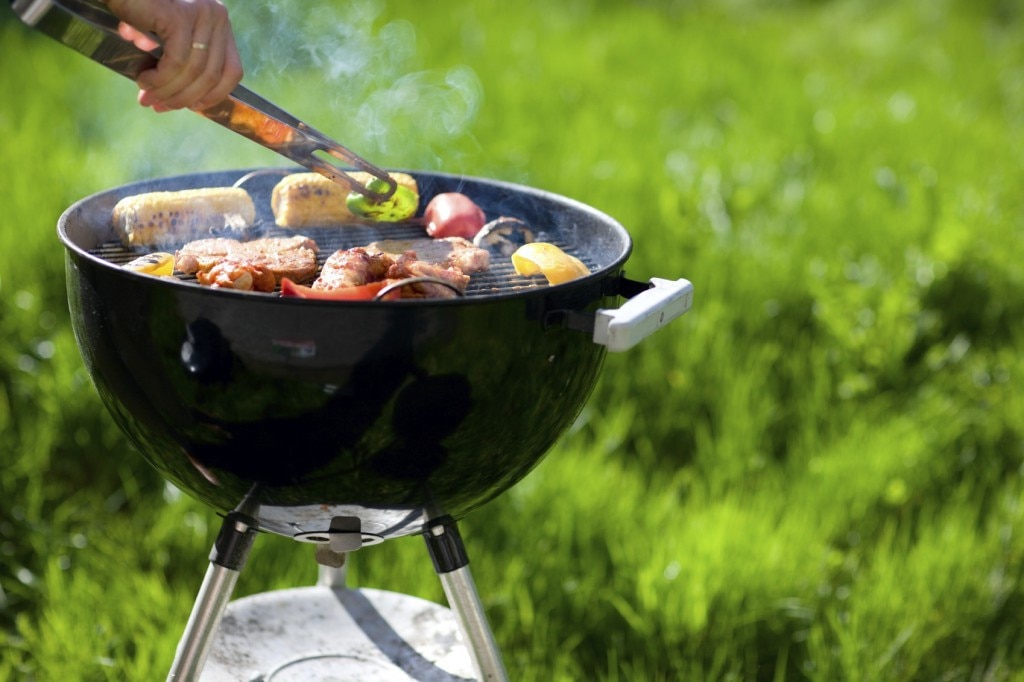Summer has officially arrived, and the smell of charcoal is in the air. Barbecues are as intrinsically linked to the season as flip-flops and fireflies, but unfortunately there are dangers lurking in the grill.
Grilling meat can add a wonderful taste to your entrée, but it can also create heterocyclic amines (HCAs) and polycyclic aromatic hydrocarbons (PAHs), both of which, according to a 2009 review featured in the journal Nutrition and Cancer, are known cancer-causing substances.
Alice Bender, RD, nutrition communications manager with the American Institute for Cancer Research (ACRI), explains that grilling does in fact increase the risk of developing cancer. “Barbecuing, grilling and frying use the highest temperatures for cooking meats, so more HCAs are formed using these methods than baking, for example,” explains Bender. “Charring leads to PAH formation.”
Fortunately, even with grilling, you can take steps to dramatically reduce the amount of harmful HCAs and PAHs. A great griller should focus on how the meat is prepared and how it’s cooked.
According to a 2010 review in the Natural Medicine Journal by naturopathic oncologist, Jacob Schor, ND, FABNO, “HCA formation may be reduced by decreasing cooking temperature, cooking time or altering the manner of cooking.”
Schor and Bender offer these tips for safer summertime grilling:
- Do not overcook meat. Schor explains that “individuals who prefer their meat cooked well-done versus rare to medium-rare have a three times higher risk of developing stomach cancer.”
- Marinate the meat. A 2007 paper in the Journal of Agricultural and Food Chemistry found that one part lemon juice to two parts garlic and onions helped reduce HCA formation in grilled meats. A 2010 report in the Journal of Food Science showed that rosemary-marinated meat reduced HCA formation by as much 90 percent. Ginger, turmeric and red wine are also good choices for health-protecting marinade ingredients.
- Use spice rubs. Schor says another way to infuse protective herbs and spices into the meat is to create a rub that is put on the surface of the meat before cooking.
- Mix it up. Adding health-promoting fruits and herbs directly to the meat has also been shown to protect against HCA formation. Studies indicate that cherries, dried plums, apples and garlic all have protective effects when added to hamburger before cooking.
- Pre-cook and cook slowly. ACRI explains that pre-cooking meat reduces the amount of time spent exposed to the high heat and will reduce HCA formation. Also, slow grilling on a lower heat means meat is less likely to char, which reduces HCA and PAH formation.
- Remove chicken skin. A 2010 study in the American Journal of Clinical Nutrition showed that removing skin from chicken before cooking it significantly cut down on HCA production.
- Avoid processed meats. Bender explains that processed meats such as sausages and hot dogs have been linked to an increased risk of colon cancer—and that’s even before those meats are grilled.
“The scientific research suggests that it is certainly possible to significantly lower the formation of cancer-causing substances during grilling,” explains Schor. Mixing in health-protecting spices, herbs and fruits in the meat, marinade or rub is a great first start. From there, grillers should exercise restraint when calculating cooking time and temperature. There’s no need to sacrifice one of summer’s quintessential pleasures—just do it wisely.

